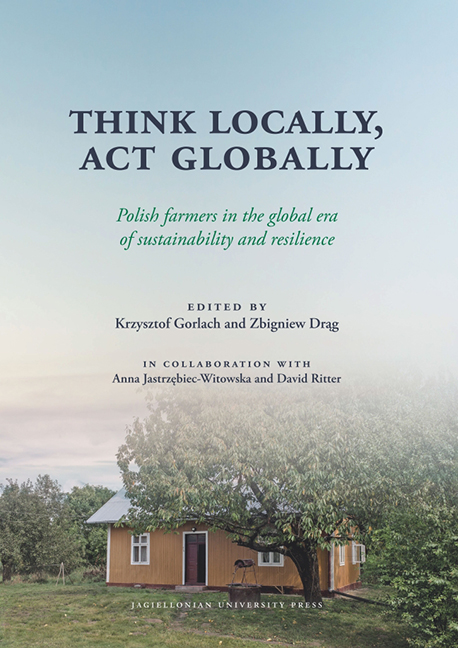Book contents
- Frontmatter
- Contents
- Family Farming: A foreword
- An Introductory Letter from the First Editor: Where the horses, cows, and even cats had their own names
- Part One Theoretical and Methodological Considerations
- Part Two Changes in the Post-Communist Transformation
- Part Three Diversification of Farmers’ Strategies
- Part Four Some Independent Studies
- Conclusion: Some Final Remarks from the First Editor
- Afterword: Renewing a Sociology of Agriculture
- Biograms
Chapter Twelve - The Modern Barn in the Local Cultural Field: Habitus of strong family farms in the face of changes in the contemporary Polish countryside
Published online by Cambridge University Press: 16 July 2022
- Frontmatter
- Contents
- Family Farming: A foreword
- An Introductory Letter from the First Editor: Where the horses, cows, and even cats had their own names
- Part One Theoretical and Methodological Considerations
- Part Two Changes in the Post-Communist Transformation
- Part Three Diversification of Farmers’ Strategies
- Part Four Some Independent Studies
- Conclusion: Some Final Remarks from the First Editor
- Afterword: Renewing a Sociology of Agriculture
- Biograms
Summary
Introductory Remarks
The period of time from the decline of Communism to the present day was a time of deep and radical changes in the functioning of the Polish countryside. After 1956, when Polish authorities ceased their push for collectivization in agriculture, the slow process of agricultural modernization began. It meant a relative improvement in access to agricultural machinery and the industrial means of production, but it did not lead to farm enlargement or specialization in agricultural production. In the second half of the 1980s, Polish agriculture appeared to function symbiotically with the economy of deprivation which characterized that time. It generated a rather specific rationality for farming, in which limited access to the means of production was compensated by the comforting certainty that the agricultural products will be sold, even if they were not produced in an efficient way. This preserved farm fragmentation and thus, the agricultural sector at the time was not really able to maximize production (Halamska, 2015, pp. 113–114).
This time period was interrupted by changes related to the transformation of the political system. These were all-encompassing transformations of the economic system and various forms of support for the agricultural sector ceased to exist. The certainty of sales of agricultural production ended rapidly and there was a significant drop in profitability, while competition increased substantially. The countryside became a buffer zone absorbing the workforce surpluses that resulted from rapid economic changes occurring in other sectors. The difficult conditions in which agriculture existed at the time contributed to the unfolding of a gap between small subsistence farms, that produced for their own needs and only aimed to maintain their existence, and larger, specialized farms that were on the rise and actively adjusted themselves to the new conditions of farming (Gorlach, 2001, pp. 173–187; 2009, pp. 73–80).
The accession to the European Union, as well as the prior emergence of pre- -accession instruments of support for Polish agriculture and rural areas, led to another change in that realm. This allowed for access to numerous programs which served to bolster the agricultural modernization process (Fedyszak-Radziejowska, 2005, 2008), as well as the acceleration of market elimination of some farms that could not adjust well to the preferred production modes (Bukraba-Rylska, 2014).
- Type
- Chapter
- Information
- Think Locally, Act GloballyPolish farmers in the global era of sustainability and resilience, pp. 523 - 560Publisher: Jagiellonian University PressPrint publication year: 2021



